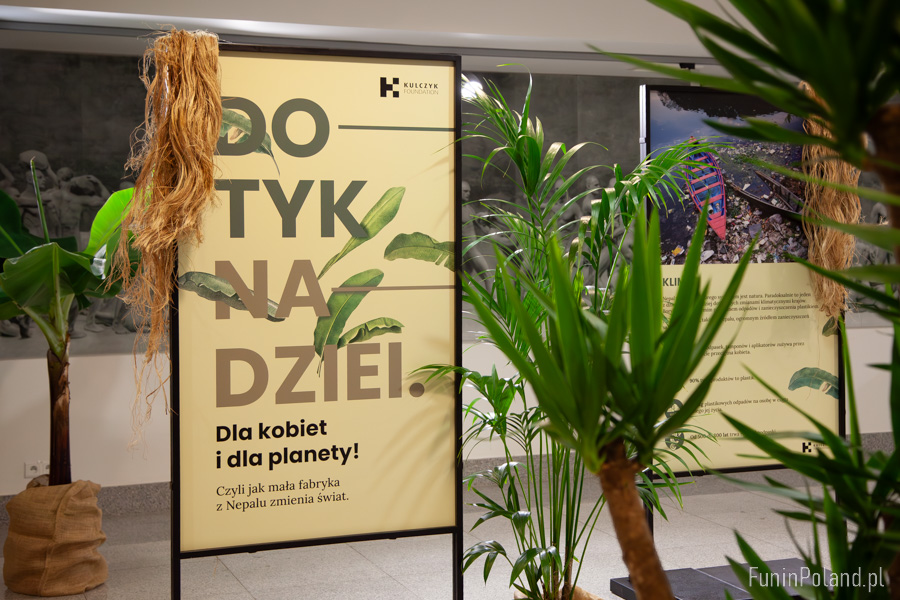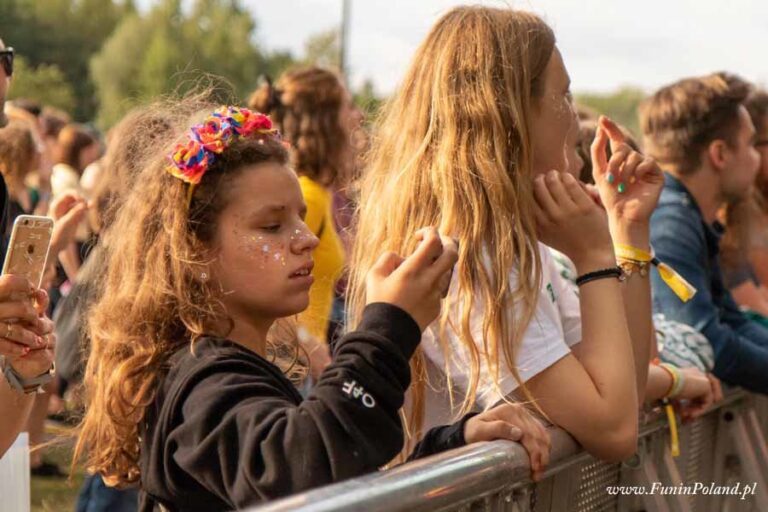
Strona główna » News » Yellow Umbrella
During this edition of Ostroda Reggae Festival (9-11 July 2011) a FunInPoland representative interviewed Jens Strohschnieder (vocal, keyboard) and Thomas Hellmich (trombone) from Yellow Umbrella – reggae/ska veterans from Dresden (east Germany). Here is an edited version of the conversation.
How do you feel after the concert?
Thomas. I always feel good after concerts because of all the adrenaline.
Jens. Before the concert we were feeling pretty nervous because Ostroda is a big festival. We haven’t been playing here for fifteen years. But we had a good welcome and we enjoyed the show, dancing, singing and laughing.
Do you remember anything from fifteen years ago when you were here?
Jens. It’s actually easy to remember because it’s a long trip from Germany to northeastern Poland. I remember the distinctive location near old military barracks. We were friends with a lot of Polish bands and musicians such as Paprika Korps and Vavamuffin. We’re like one big family.
How many concerts have you given so far this year?
[Best_Wordpress_Gallery id=”2290″ gal_title=”Yellow Umbrella 2021″]
Thomas. It is only our fifth concert this year – we had two in Germany last month and Ostroda finished our tour in Poland consisting of three concerts.
Our festivals in Poland have been through tough times recently due to coronavirus. How were things in Germany?
Thomas. In Germany we had rules about safety in concerts. For example, people were not allowed to dance, they had to sit. Now the rules are more lax, like here in Ostroda. On some concerts you have to bring proof of being tested for coronavirus. Furthermore, there are almost no international bands on tour in Germany these days.
Jens. We were thinking about doing concerts about listening to music, but our music is for dancing, so we are happy that people are allowed to dance and smile again. We’ve also had problems with repeatedly canceled festivals. For example our concerts in Czech Republic got canceled two years in a row. Hopefully we will be able to play there next year and the dark times will be over.
Thomas. At least it’s good for the local bands, being able to get more spots on line-ups of bigger events. Maybe festivals like Ostroda can get a more even mixture of local and international bands next year.
What about your band? Has the pandemic affected you negatively?
Thomas. It was also difficult for us because our saxophonist Bernard Lanis is from France and we had a lot of worries if he could get to our concerts in Germany and Poland. There was a time when he was not allowed to enter Germany and we couldn’t even rehearse. Even fairly recently around February we still had this law. Thankfully it has gotten better and now we’re allowed to travel.
What is the history of reggae and ska in East Germany?
Thomas. Ska took off in East Germany after Messer Banzani was formed in 1989 in Leipzig, even before reunification of Germany. They gave a concert in West Berlin a few months before the wall came down, it was then that people realized that there’s a scene – and demand – for ska in the communist half of Germany. The early 90s after reunification of Germany was a good time for ska, there were a lot of new bands and ska quartets popping up in East Germany. Ska was decently popular among people and a lot of new musicians wanted to play it.
Where does your band fit into this, how did you form?
Jens. Most of our band came to Dresden from West Germany. Only Thomas and Jurgen (bass) are from East Germany. We met there sort of by accident and decided to form a band. The 90s were a crazy time like that.
It’s been 27 years since Yellow Umbrella was formed. How did ska and reggae scenes change in Germany in that time?
Thomas. A lot happened in that time, it went through highs and lows. There was a time when reggae was commercially big, with artists like Seeed, Gentleman and Dr. Ring-Ding.
Jens. A lot of them also played here in Ostroda. The German and Polish reggae scenes have been very interconnected practically since the 90s. For example, our band has visited every major Polish city during our career, some during long tours across Poland. We’ve seen almost all of Poland by now, which is very cool.
Are there any highlights of your career that you are particularly proud of?
Jens. Being in Poland. Seriously. It’s really nice to travel with your music. This afternoon we were walking along the lake and it was such a nice feeling – it is pretty much a vacation for us. We wouldn’t have been here if we were not traveling with our music – bringing us to places that are very nice.
You are a group of seven. How do you organize your work when it comes to writing new songs?
Thomas. Jens writes the songs, writes down the ideas and sends them around. With the modern technology it’s relatively easy.
Jens. It’s fast and easy since I’m the main vocalist and I’m writing the lyrics for myself along with the chords. Then we work on the song together. Sometimes it’s very easy – we play a little and immediately get something we can play. Other times it can take years to finish a song. It took one of them eight years before it was ready. It’s the art of going from composing the song to arranging it and making it sound good.
What are your musical inspirations aside from reggae and ska? Got any favorite artists outside those genres?
Thomas. We are big fans of klezmer music and eastern european music, especially from Balkans and Russia. As for artists, I could name Fanfare Ciocarlia and Giora Feidman as some of our favorites.
Your band is also famous for publishing children’s books, featuring a reggae bunny. Where did this idea come from?
Thomas. We were thinking about doing something for kids for festival in Dresden. We started to play folk songs, kid songs, and reggae style songs. Then we started putting funny costumes on, making funny stuff on stage. Then an idea came to make a story and we needed a protagonist, who we named Boooo. We played like this for three years before someone said that we should write this down.
Jens. Lukasz Rusinek from Paprika Korps does the illustrations for these books. He’s a great friend of ours and one of the best illustrators and animators in reggae scene. Also all of us except Fritz have kids. Me, Thomas and Jurgen have three each.

The most interesting events in Poland on summer. Concerts, Festivals and outdoor events. Jazz, Rock, Reagge, Rap, Hip-Hop, Beer and traditional polish food.
NET-STUDIO
ul. Pułaskiego 91b/70
33-100 Tarnów
mail: See: KONTAKT
Phon: +48 609 085 200